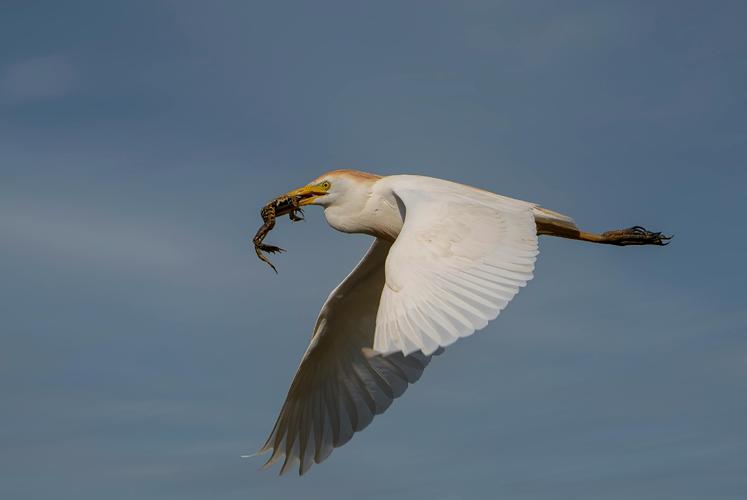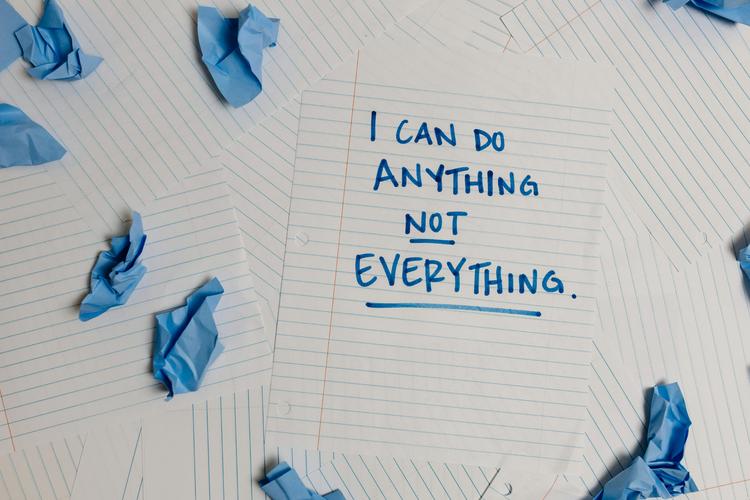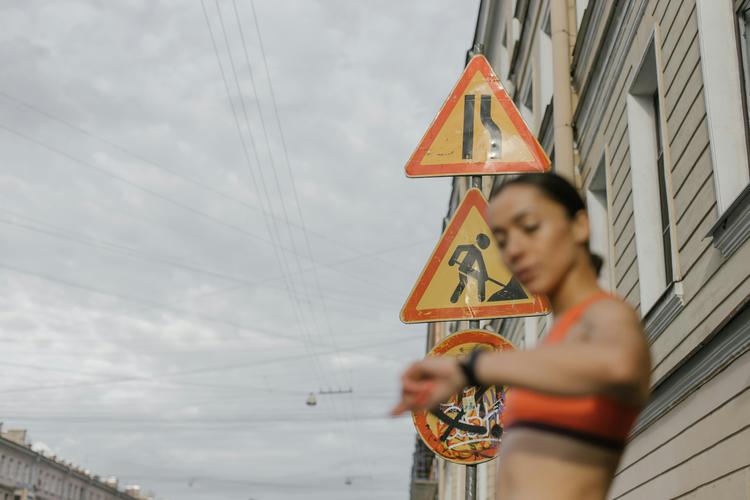Life & Academia
The researcher's superpower: How habit formation impacts academic productivity
Whilst your colleagues are still negotiating with their snooze buttons, you're already settled at your desk with a steaming cup of tea, effortlessly diving into your latest research paper. No internal debate, no procrastination – just seamless productivity. I know it sounds like wishful thinking, but this is the power of habits in action.
As researchers, we often believe that academic success depends on bursts of inspiration, late-night cramming sessions, or sheer willpower. However uncomfort…
How to find the right academic journal for your research: a complete selection guide
After months (or years) of rigorous research, your data analysis is spot-on, and your manuscript is polished to perfection. You're ready to share your groundbreaking findings with the world. Then reality hits – which of the thousands of academic journals out there is the right fit for your work?
Journal selection is one of the most crucial yet underappreciated aspects of the publication process. Publication in a peer-reviewed journal is the goal of any research project. One of the most import…
Why your research identity matters as much as your methodology: The hidden foundation of academic success
Two PhD students start their programmes on the same day, with identical backgrounds, the same supervisor, and access to the same resources. Three years later, one has published multiple papers, presents confidently at conferences, and is thriving. The other struggles with writer's block, procrastinates constantly, and questions whether they belong in academia at all.
What made the difference? In this case, it wasn't intelligence, funding, or even luck. And of course, when working with humans,…
Creating accountability to move from good intentions to real progress in your PhD
Over my years in academia, I've witnessed countless brilliant minds struggle with what Stephen Covey famously termed "important but not urgent" tasks. Those are the tasks that your future self will thank you for, yet we keep transferring them to tomorrow’s to-do list. One way to overcome this is through using accountability to your benefit.
Here's a typical scenario: You're sitting in your favourite coffee shop, laptop open, ready to tackle that crucial chapter of your dissertation. The deadl…
Rethinking work-life balance: A researcher's guide to designing a sustainable academic life
Last Friday, I dropped the ball in spectacular fashion. Overwhelmed by multiple projects and commitments, I missed an important email from my son's school about a day trip. By the time I realised my mistake, it was too late - all his classmates were going on this exciting adventure, but he wasn't.
The guilt was immediate and crushing.
This experience made me think deeply about work-life balance, particularly for those of us driven to create an impact while desperately wanting to maintain a…
Academic collaboration isn't just a nice-to-have: the evidence-based case for building your research network
You're sitting in front of your laptop at 2:00 am, wrestling with a particularly stubborn research problem that's been haunting you for weeks. You've read every paper, analysed every dataset, but something's still missing. Yip, I’ve been there. You?
Now imagine having a network of brilliant researchers just a message away, ready to offer fresh perspectives, share resources, or even collaborate on the solution. (Okay, let’s be real, maybe you’ll have to wait until the sun’s up before you get a…
Why the best researchers don’t just fix weaknesses - they double down on strengths
You've just received your latest peer review comments, and once again, they're filled with suggestions for improvement, corrections, and areas needing work. Sound familiar? If you're a researcher, whether a postgraduate student or academic, this scenario probably feels all too real. In academia, we've become so accustomed to focusing on what needs fixing that we've forgotten to celebrate and leverage what we already do brilliantly.
While addressing weaknesses remains important, research shows…
How to write a brilliant discussion section: A 10-step guide for researchers and postgraduate students
You've spent months collecting data, your results section is polished to perfection, and now you're staring at a blank page, wondering how on earth you're going to write a discussion that does justice to your hard work.
The discussion section is often the most challenging part of any research paper or dissertation to write, yet it's arguably the most important. It's where you transform raw findings into meaningful insights that advance your field.
The discussion section is your opportunity…
The multitasking myth: Why single-tasking is your secret weapon for research productivity
This may sound familiar: You're deep in your literature review, synthesising complex findings, when your phone buzzes with a WhatsApp from your supervisor. You quickly reply, then notice an intriguing conference call for papers in your email. As you skim the details, another notification pops up – a reminder about that data analysis deadline.
If you're nodding along whilst simultaneously checking your email (yes, I see you!), you're experiencing the multitasking trap. We've all been there – …
The complete declutter: creating physical and digital workspaces for academic success
Picture this: you've just returned from a brilliant seminar, buzzing with ideas for your research project, only to find your desk buried under a mountain of journal articles, sticky notes that have lost their stick, and that cup of tea from Tuesday that's developed its own ecosystem. Your laptop screen is a constellation of files named "FINAL_version_3_ACTUAL_FINAL.docx," and your inbox shows 1,247 unread emails. Sound familiar?
If you've just experienced that familiar pang of recognition, yo…
Parkinson's and Hofstadter's Laws: How to stop research projects from taking forever, while no longer underestimating their completion time
As I settled into my office one Monday morning, a PhD student knocked on my door. She looked exhausted, frustrated, and on the verge of tears.
"I don't understand what's happening," she confessed. "I gave myself three weeks to finish my literature review chapter, thinking that was generous. Now the deadline's tomorrow, I've been working non-stop all weekend, and I'm nowhere near finished!"
Her experience perfectly illustrates the peculiar time paradoxes I've observed throughout my academic…
Timeboxing, academic writing retreats, and creating dedicated focus time for your research
Have you ever had one of those days where you sat at your desk for hours, feeling busy and exhausted at the end, but struggled to identify what you actually accomplished? Last month, a final-year PhD student sat on the other side of my screen with exactly this frustration.
She sighed, then said, "I'm working constantly, but my thesis isn't progressing. I feel like I'm always busy but never productive."
I could soooo resonate with her words and have felt this in my own life many times befor…
Eat that frog: Why tackling your most challenging task first transforms academic productivity
There it sits on your to-do list, day after day. Perhaps it's finalising your literature review chapter, analysing that complex dataset, or drafting the methodology section of your paper. You know the task - the one that makes you suddenly discover an urgent need to reorganise your reference library, clean your desk, or check your email for the twelfth time today.
We've all been there. As postgraduate students, researchers and academics, we face particularly complex and challenging tasks that…
The procrastination puzzle: Breaking the cycle of delay in academic work
It's 11:42 pm. You've been sitting at your desk for hours, yet your literature review remains stubbornly unwritten. Your browser history reveals a curious journey: from legitimate research papers to increasingly tangential topics, culminating in a deep dive into the migratory patterns of Arctic terns. Sound familiar?
If you're nodding in recognition, welcome to what I affectionately call the 'procrastination puzzle' – that perplexing tendency to delay important academic work despite knowing b…
Debunking to-do list myths: How to make lists work for you
As I watched yet another brilliant PhD student stare hopelessly at their overwhelming to-do list during our supervision meeting last week, I was reminded of academia's curious relationship with task management. Despite our rigorous training in research methodologies and critical thinking, many of us struggle with the seemingly simple act of organising our daily tasks.
Does this sound familiar? It's Monday morning, and you've crafted what appears to be the perfect to-do list for your research …
Prioritisation with Eisenhower, MoSCoW & Pareto in the Research Context
Are you struggling to decide which research tasks deserve your attention? Learn how three powerful prioritisation frameworks can transform your academic productivity and help you make strategic decisions about where to focus your limited time and energy.
James, one of the brightest PhD students, outlined his ambitious research plans for the coming term. His enthusiasm was palpable as he described five experiments, two conference submissions, a grant application, and significant progress on hi…
The SMART and PATHS approach to academic goal setting and action planning
Last week, I met with a brilliant PhD student who was visibly frustrated that day. She sighed and said, "I understand my research topic inside and out. I've read all the literature. I've collected mountains of data. But I'm just not making progress toward completion."
Her predicament wasn't unusual. In my 17+ years supervising postgraduate research, I've witnessed this scenario countless times: exceptionally capable researchers who, despite their intelligence and subject expertise, struggle to …
Lost in research? How vision statements transform academic productivity
Create focus, direction and momentum in your academic journey with a powerful research vision statement. Discover how this strategic tool can transform your research effectiveness and wellbeing.
Maya (not her real name) slumped into the chair across from me during our scheduled supervision meeting. The usual spark in her eyes was noticeably absent.
"I feel completely overwhelmed," she confessed. "I've been working on my PhD for eight months now, but I'm just spinning my wheels. I read articles…
Energy management: The secret weapon in academic productivity
In the fast-paced world of academia, where research deadlines, teaching responsibilities, and personal commitments often collide, managing energy effectively is just as crucial as managing time. For researchers and postgraduate students, the ability to produce high-quality work consistently is a cornerstone of success. Yet, many fall into the trap of working long hours without considering when they are most productive. Recognising one's peak productivity hours and scheduling demanding tasks acco…
NIHR Career Development Opportunities: Expanding Research Careers in Health and Care
Research is transforming healthcare delivery and patient outcomes across the UK. The National Institute for Health and Care Research (NIHR) has significantly invested in expanding research opportunities for health and care professionals at all career stages. This blog post outlines the range of NIHR career development pathways now available, with a particular focus on recent expansions designed to include previously under-served disciplines.
A Collective Strategic Vision
The National Materni…
The complete guide to academic referencing: general principles with Harvard referencing style examples
Remember that time you told a hilarious story to your friends, only to have someone pipe up with, "Hey, I told you that story last week!" Nothing worse than accidentally taking credit for someone else's work, right? Well, that's essentially what happens in academia when we forget to reference our sources – except the consequences are a tad more serious than a miffed friend.
I can clearly recall the uncertainty I felt when I did my very first research project, how I struggled to get my head ar…
PhD funding opportunities for health research in the UK
Embarking on a postgraduate degree is an exciting step in your academic journey, but the question of funding can often loom large. Securing financial support is crucial for allowing you to focus on your research and studies without unnecessary stress.
Fortunately, there are numerous avenues to explore, from prestigious fellowships to specialised studentships. In this blog post, we'll delve into various funding options specifically designed for postgraduate students in the health sciences, hel…
The 5 Steps of the Research Process: A Postgraduate Research Roadmap
Starting a postgraduate research project can feel like setting off on an expedition without a map. Whether you're pursuing a master's or doctoral degree, understanding the key steps of research can help you navigate this academic adventure with more confidence.
Chances are that you’ll need to complete a thesis or dissertation as part of your postgraduate journey. A thesis or dissertation (the term used will depend on your country and institution) is a substantial piece of academic writing tha…
10 Keys to preparing for your PhD Viva: A comprehensive guide to a successful PhD Defense
The PhD viva, commonly referred to as the PhD defense in the USA, is an oral examination whereby a PhD candidate "defends their thesis". A bit of background info: viva is short for viva voce, which is a Latin word that means “by live voice”.
The PhD viva is often considered one of the most daunting aspects of the doctoral journey. This final hurdle can induce anxiety and apprehension, even among the most confident candidates. The prospect of defending years of research in front of expert exa…
How to write the acknowledgements of your dissertation – two examples included
The acknowledgement section of your dissertation is a special section to write. It tends to evoke many emotions of gratefulness toward one’s ecosystem, the support network that carried us through the dissertation. It is often done with a bit of moisture in the eyes.
While one would think that the words for the acknowledgement section will flow naturally onto the paper, this is not always the case. After writing a dissertation of 315 pages, being subjected to brutal peer review and subjected t…
9 AI Tools + 2 Smart Platforms to Supercharge Your Research
As a researcher, I create new knowledge or use existing knowledge in new ways. I work closely with other researchers, and more are using AI now. Some use it well, while others don't. It's important to think carefully about how we use AI. Just because we can do something with AI doesn't always mean we should.
Anyway, I was talking about useful AI tools, innovative software and platforms in general. There are so many excellent tools out there these days that it's hard to know which ones to use.…
8 strategies to optimise your research output while creating impact
This blog post will provide you with strategies to enhance your productivity and focus and help you get what needs to be published published. Our research needs to be published in order for it to become known to our fellow researchers, who will create new studies based on our research findings. Also, publishing your results allows others to use those findings to change policy and practice and, in that way, create an impact. This means that we have a responsibility to get our work published.
B…
Conquer your research project with 13 time management and productivity strategies that work
Why does it seem like some have more hours in a day than others? Time is a finite resource. Can we really manage it? It ticks away as you read this without us having any control over it. The challenge lies not in managing time itself but rather in managing our behaviours as to what we do while time is doing its own thing. This blog post explores the nuances of time management for postgraduate students working on their research projects.
Why is it sometimes so difficult to make progress on our…
From Must-Haves to Won't-Haves: The MoSCoW Method for Achieving Your Goals
The MoSCoW method is a prioritisation framework commonly used in project management and goal setting. It is often used in product development to prioritise product features, but it can be applied in everyday life to cast a critical eye over the items on our to-do lists and to help us prioritise them according to our time and other resources available. Software development expert Dai Clegg created the MoSCoW method while working at Oracle.
The acronym MoSCoW stands for:
- Must-haves
- Should-h…
Mastering the Eisenhower Matrix for Increased Productivity and Success
Dwight Eisenhower, president of the United States from 1953 to 1961, had a passion for productivity. His strategy to use what we know today as the Eisenhower Matrix as a decision-making tool helped him in his quest to get more done in work and life. Although he achieved numerous accolades in his professional life, he still had time to pursue hobbies such as oil painting and golf. Let’s see what we can learn from this strategy.
The Eisenhower Matrix, also called the Urgent-Important Matrix, an…
7 To-Do List Myths DEBUNKED: The SECRETS to Making To-Do Lists Work
In this blog post, we'll tackle seven common arguments against using to-do lists and offer solutions to overcome these challenges. We'll debunk each myth, while I'd specifically like to hear your thoughts on the last one.
Myth #1: To-do lists are unhelpful because they contain large, vague tasks.
Problem: When your to-do list is filled with overwhelming, unclear tasks, knowing where to start and feeling motivated can be difficult.
Solution: Break down large tasks into smaller, actionable …
Oxford Brookes University Graduation Guest Speech: Two Unconventional Truths
I was the guest speaker at a graduation at Oxford Brookes University on 6 September 2023. I feel both honoured and humbled by this experience. I always looked at the guest speakers at graduations and thought they were super-humans – they looked calm and in control – as if they were busy cooking oats for a family member while, in actual fact, they are the centre of the attention of 300-odd people.
While I don’t know what I looked like up on the stage, I do know that humans are humans – we stre…
Finding your research niche: the what, the why and the how
Amplify your success with these 10 self-mastery solutions for postgraduate students
Authorship in Academic Publication – how does it work?
Researchers entering into a collaboration for the first time often ask, “how does one decide who gets authorship and who gets acknowledged in the publication?”. Authorship can be quite sticky seeing that career progression and other academic rewards are at stake.
The discussion around authorship needs to take place in the early phases of the project, where you agree on who will contribute in what way to the project and paper. This is also the time to confirm who will not be authors on the pap…
7 things to consider when choosing a topic for your dissertation or thesis
As the postgraduate coordinator in the Physiotherapy Department at the University of the Witwatersrand, one question I often get from prospective postgraduate students is, “how do I decide on a topic for my master’s or doctoral dissertation or thesis?”
This blog post will highlight a few things to consider when it comes to deciding on a topic for your dissertation or thesis (if you prefer the video above text, scroll down). I’m using examples within my own experience and scope, and I hope you…
14 Top Tips for getting your Precious Paper Published
Move your research project forward with this micro-level planning top tip: "Next Steps for Tomorrow, Today"
How to find examples of completed theses and dissertations: what’s inside the box?
7 principles to consider while navigating the academic journey
Work-life balance strategies for postgraduate students
You are doing a postgraduate degree because you know it is what your career needs. You thought long and hard about whether to enrol; you weighed the pros and cons, calculated the hours required to make it work, and made an informed decision using the information at your disposal… now you are knee-deep immersed in it. You feel pulled apart between what your postgraduate degree requires and life out there; your kids need you, or you are working part-time, or you are planning your wedding, or you a…
Effective (& Reasonable) Goal Setting
Goal setting… it sounds so easy; you jot down a few wishes, and off you go. If it is so easy, why do so many of us not achieve our goals? This blog post will look at the goal itself and deeply dive into how you can formulate your goals to set yourself up for success.
You may have heard some proclaim that one should not have New Year's resolutions. New Year's resolutions sound like this "I want to be happy", "I want to be successful", or the famous "I want to lose weight" or "I want to complet…
Having to deal with strong emotions? Just FAVE them
We have all been confronted with strong emotions from a fellow student, supervisor, friend or foe. A friend shares an experience and we, coming from a good place, jump in with an array of solutions. Often followed by an unexpected reaction from our counterpart. This type of situation does not benefit either party, creates animosity and leaves one feeling empty.
I read a blog post recently that described the importance of not jumping into solution mode immediately when confronted with strong e…
How to increase the number citations to your research paper
In a research paper, a citation refers to a source of information. In-text citations are used in the body of the paper, while end-of-paper citations are found in the reference list at the end of the paper.
You may wonder why one would want to increase the number of citations to one’s paper. The number of times one’s research paper is cited is used as a measure of the reach (also referred to by some as impact) of a researcher’s work. The number of citations is used in various metrics, includin…
Create an Elevator Pitch for your research | Get crystal clear clarity and more opportunities
Imagine you are getting into an elevator and someone asks you "what is our research all about", you need to describe what it is and why it is important before the elevator reaches its destination and the two of you part ways. By the time you exit the elevator, the other person should know exactly what problem your research is addressing, what it is that you are researching and why it is important.
But why would we care about putting an elevator pitch together? Firstly, formulating your elevator…
Narrative vs systematic vs scoping review: What’s the difference?
I often get asked what the difference between a narrative review and a systematic review is, or what the difference between a narrative review and a scoping review is. This is also something I wondered about when I was new to the world of research.
Let’s first look at what a systematic review and scoping review are. A systematic review is done to identify research studies published on a certain topic, with the primary aim to recommend best practice on a certain topic and inform policy. This i…

















































